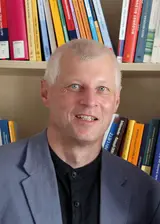Although University of Erfurt is not one of the first centres of the Enlightenment in the German-speaking and cultural area in historical memory, like Halle, Leipzig, Zurich, Hamburg, Königsberg or Göttingen, it nevertheless occupies an important place among the cultural and scientific centres of the time thanks to its university. The historian Étienne François has described the Hannover – Berlin – Dresden – Erfurt – Göttingen region in terms of publishing and book production as a region whose dynamism and creativity has no parallel in Europe. Against this background, in the 300th anniversary year of Immanuel Kant's birth, the conference is dedicated to the University of Erfurt as a genuine and productive centre of Enlightenment thought.
In addition to Christoph Martin Wieland (1733–1813), who is best known, radical Enlightenment thinkers such as Carl Friedrich Bahrdt (1740–1792) and Friedrich Justus Riedel (1742–1785) or Johann Christian Lossius (1743–1813), who developed an alternative to Kant's critical metaphysics with his physiological Philosophy, worked here. They had colleagues who were less conflict-accentuated, but who promoted the history of science with their own contributions. At the same time, there were conflicts within the university, exemplified by the dispute between the theology professor Johann Balthasar Schmidt (1720–1772) and Carl Friedrich Bahrdt. One of the critics of the radical Enlightenment was the Augustinian theologian Jordan Simon (1719–1776) with his concept of a moderate, Catholic Enlightenment. Last but not least, Friedrich Justus Riedel and Jakob Adlung (1699–1762) intensified the scientific study of aesthetics and Music in the spirit of the Enlightenment. The period from 1750 to 1775 is regarded as the core period in which the University of Erfurt became part of the educational biography of actors whose ideas became effective at the end of the century, such as the writer Wilhelm Heinse (1746–1803) and the philologist Dietrich Wilhelm Andreä (1749–1813).
Please refer to our flyer for the detailed programme of the conference (in German only).

